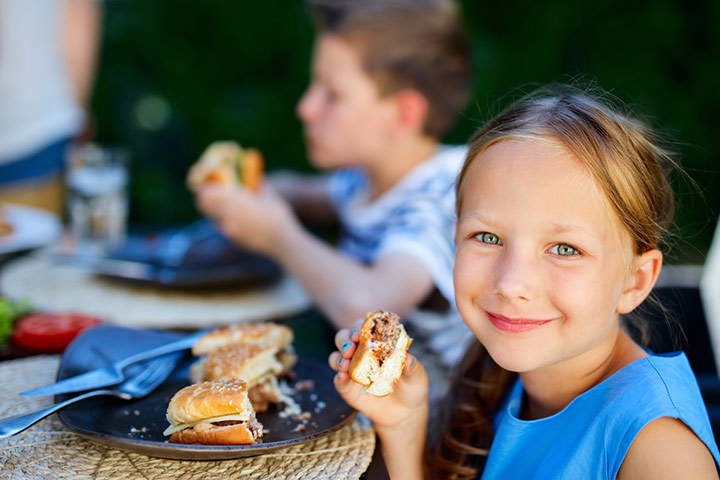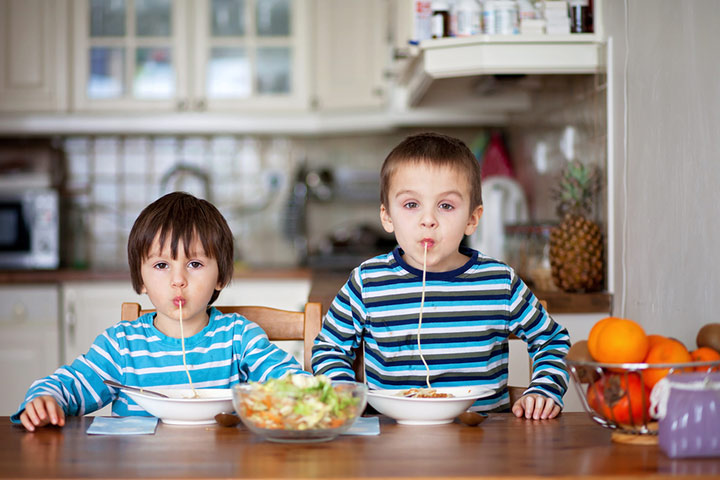
Image: Shutterstock
Being a parent in this era can be challenging. Trying to juggle work, personal well-being, being a good partner, and being an available parent is never easy. Finding the time to catch up on what’s going on with the kids can get tricky as the years go by. The more your babies grow, the more independence they want. And before you know it, you don’t really know much about their lives. Most families ensure that they eat at least one meal together every day to combat this difference. But off late, even this simple practice has been hard to maintain. This little ritual definitely deserves a comeback. Eating together has several benefits for your children and is a great way for you to come together as a family.
Here are 5 reasons why eating together is good for the family:
1. Facilitates Communication
Image: Shutterstock
It’s easy for kids to feel disconnected from their parents as they grow up and interact with diverse environments. We know most of us felt like our parents could never relate to our struggles. But this simply isn’t true, is it? Most children feel isolated when they cannot regularly have meaningful conversations with their parents. Having family meals is a great solution to this little conundrum. A comfortable and relaxed environment will enable your children to openly talk about their feelings and thoughts. And doing this over a meal while everyone goes around the table feels homely. Eating together facilitates better parental communication, minus all the awkwardness and stress.
2. Fosters Good Manners
That’s right, your children learn way more than table manners around the dining table. Children tend to mimic their parents’ behavior when they observe them, and mealtime is no different. They are constantly picking up on how to interact with people in this specific social situation, what’s appropriate and what’s considered bad manners. Parents can use this by showing their kids how to behave and be polite and courteous while eating meals. Expressing gratitude for the person who has cooked the meal and offering to clean up and do the dishes will help them grasp the concept of reciprocation. Soon enough, your little ones will want to join in and help. Keep the meals going as core social and communication skills are learned while having meals together.
3. Better Grades
Image: Shutterstock
Studies prove that children who eat by themselves get lower grades than those who eat with their parents(1). This is because eating meals with parents around ensures that the kids eat everything on their plate. In addition, taking the time to eat a full, nutritious meal that has all the vitamins and major food groups necessary for your child’s health will ensure that they are energized and focused in school. Moreover, discussing their school problems while consuming these meals will help them find efficient ways of handling stressors that affect their concentration levels. Finally, eating together makes sure that your kids spend their time on the things that really count.
4. Improved Self-Esteem
Image: Shutterstock
Creating a safe space and a sense of belonging will do wonders for your children. Allow your children to find this space when they eat with you. Children cheer up and are more enthusiastic when their parents make inquiries and seem genuinely interested in their lives. In addition, focusing on food and conversation will boost their social engagement and interactions, increasing their self-esteem in time. Children, especially teenagers, need to mingle and relate to the people around them to not feel depressed or isolated. And sharing food with your loved ones is a great way to make that happen.
5. Becoming Self-sufficient
Image: Shutterstock
Learning to be more independent is a huge milestone for your kids, which usually happens in phases. It is not so much that your children go off on their own than it is learning how to do things alongside a parent. For example, helping you cook and doing small tasks that contribute to preparing the meal is a great way to gain some autonomy. They learn what to do and explore how they want to do it. Be it grocery shopping, planning a meal chart for the week, or dicing veggies. This will also help them learn to appreciate all the effort that goes into their meals and help them be more careful about finances. For example, your child is less likely to throw a fit for another cereal box if they understand basic budgeting. Getting involved with the inner workings of mealtime will allow them to make decisions and learn from their mistakes.
Making time for a meal together might be difficult some days, but the payoff is great. Getting your kids involved with setting up the table and making mealtime a family affair will help them feel closer to you. So do you have any unique ideas for making family dinner a fun time? Let us know in the comments section.
















